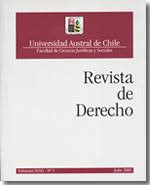Oral civil procedure: What kind of judge it requires?
Main Article Content
Abstract
This article begins with a reference to the negative effects the written and decentralized structure of the Chilean civil procedure has had on the performance of Chilean judges, and the consequences this has brought in the practice of evidence. The author appraises the positive changes that an oral civil procedure may introduce in this area, by a greater and more effective participation of the judge during the course of the procedure, and especially in the probatory stage. However, the author warns about the risks involved in the acceptance of idealistic and unfeasible theories that call for a broad judicial activism regarding not only procedural law, but also substantive law, especially concerning probatory initiative. The author regards activism in this area as inconsistent with the principles applicable to civil procedure in which the judge must maintain his/her position as a third party not involved in the conflict.

